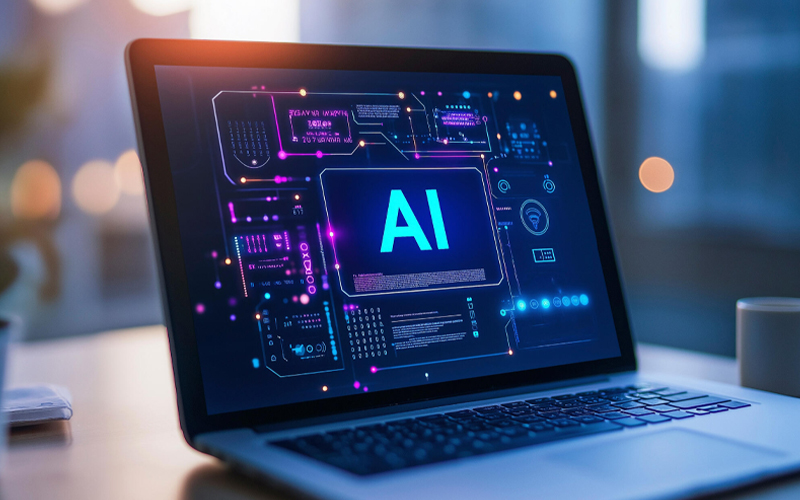Generative AI (Gen AI) has captured the world's imagination, permeating every aspect of our lives – from online discussions to boardroom strategies. Powerful Gen AI models like large language models (LLMs) have unlocked capabilities previously thought to be distant realities.
Fundamentally, Gen AI conjures human-like content — text, images, audio, and even code — by leveraging complex algorithms and vast datasets. While this capability unlocks unprecedented possibilities across industries, it also comes with inherent security risks. A Salesforce research underscores this, revealing that 73% of respondents believe Gen AI introduces new security vulnerabilities.
As organisations begin to explore and implement Gen AI, the initial excitement is giving way to more pragmatic considerations, specifically risk mitigation and governance. To navigate this new landscape successfully, we need a clear understanding of the challenges ahead and robust strategies to overcome them.
Trust and Safety concerns
Building and deploying AI systems is a thrilling adventure. But like any great quest, there are a host of serious challenges to confront, such as:
- Hallucinations and misinformation: Gen AI models can sometimes get carried away with their imaginations! They can confidently produce outputs that sound convincing but are factually incorrect, a phenomenon known as 'hallucinations'. This happens because AI does not truly "understand" the information it processes – instead, it relies on patterns and probabilities.To combat this, researchers are exploring techniques like retrieval-augmented generation (RAG) to ground responses in real-world facts, uncertainty quantification to express model confidence, chain-of-thought prompting to encourage more logical reasoning, and crucially, human feedback mechanisms to refine accuracy.
- Model alignment: This involves aligning AI goals with human values and preventing unintended consequences. Approaches like Constitutional AI (which embeds ethical constraints during training), red teaming to identify potential misuse scenarios, interpretability research to better understand model decisions, robust oversight mechanisms, and rigorous testing across diverse scenarios are all vital for responsible deployment.
- Data privacy: Data privacy permeates the entire generative AI lifecycle, from initial data acquisition to ongoing user engagement. Safeguarding privacy is crucial for fostering trust. This demands tackling challenges like memorisation (blocking models from replicating private training data), fortifying user data security, upholding data rights and ownership, and implementing techniques like differential privacy to preserve data utility while shielding individual identities.
- Deepfakes and impersonation: The ease with which Gen AI can create realistic forgeries raises serious concerns about deepfakes and impersonation. From voice cloning for phone scams to synthetic images and videos that undermine trust in visual evidence, the potential for misuse is vast. Countermeasures include digital watermarking and provenance tracking, detection algorithms for synthetic content, education on digital literacy, and the development of legal frameworks for synthetic media.
- Bias and fairness: Gen AI models can also inadvertently propagate and amplify bias and fairness issues. This can stem from skewed training data, demographic representation disparities, and the perpetuation of harmful stereotypes. Mitigating these biases requires diverse and representative training data, regular bias auditing and testing, community engagement in development, and inclusive design practices.
- Economic disruption: Beyond the technical and social hurdles, Gen AI is set to reshape the job landscape, leading to economic disruption. Job displacement in content creation, transformation of creative workflows, new skill requirements for workers, and complex copyright and compensation challenges are all on the horizon. Simultaneously, we are likely to see the emergence of new AI-related roles.
Confronting the Gen AI challenge
Addressing the challenges posed by Gen AI demands a united front, with industry and government working together. Key mitigation strategies include:
- Technical solutions such as content authentication, model monitoring, and robust testing
- Organisational approaches, including ethics review boards, incident response protocols, and employee training
- Industry-wide collaboration on standards and best practices, shared evaluation metrics, and open-source tools
- Regulatory frameworks providing clear legislation, transparency obligations, and accountability mechanisms
- Industry self-regulation through voluntary commitments to transparency, accountability, and robust risk assessment processes
- International coordination on cross-border enforcement, harmonised standards, and joint research initiatives
These strategies are essential for proactively identifying emerging threats, mitigating risks, and preventing potential misuse.
The AI landscape and the path forward
Gen AI has captivated the world, presenting unprecedented opportunities. However, the rapidly evolving AI landscape presents escalating challenges: expanding model capabilities demand stronger safeguards, while arms race dynamics accelerate development. As AI integrates into critical systems, new attack vectors emerge, raising critical trust and safety concerns.
Navigating this landscape requires a delicate balance between innovation and safeguards. Collaboration among developers, enterprises, policymakers, and users is crucial. Robust governance frameworks, transparent development, and adaptive safety measures must evolve alongside technology.
Moreover, building trust necessitates international standards that respect cultural nuances. Human-centric development, prioritising ethics, privacy, and societal well-being, is paramount.
The future of generative AI hinges on our commitment to responsible innovation. By investing in trust and safety frameworks today, we can ensure these technologies serve humanity's best interests for generations to come.
How can Infosys BPM help?
In today's AI-powered world, Infosys BPM is not just another technology provider; we are your partner in crafting a masterpiece of business transformation. We build solutions with precision and purpose, meticulously safeguarding against bias and hallucinations. Our commitment to responsible innovation guides businesses through the technological landscape, ensuring ethical AI implementation. With Infosys BPM’s Generative AI, you are not just adapting to the future – you are shaping it, one ethical algorithm at a time.







